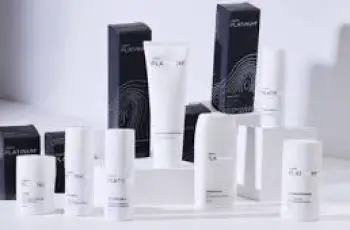
Your Ultimate Guide to Managing Spring Allergies and Protecting Sensitive Skin
Welcome, Allergy Season
As the weather warms up and the flowers begin to bloom, many people are excited to shed their winter layers and spend more time outdoors. However, for allergy sufferers, the arrival of spring is often met with less enthusiasm. The beauty of springtime comes at a cost: pollen, blooming trees, and airborne allergens that can wreak havoc on both your respiratory system and your skin.
Seasonal allergies can lead to common and frustrating symptoms such as sneezing, nasal congestion, watery or puffy eyes, and itching. But what many people overlook is the toll these allergic reactions can take on your skin. From redness and dryness to under-eye circles and irritated patches, allergy season can be a rough time for your complexion.
If you’re dealing with seasonal allergies, you’ve probably already explored medical solutions like over-the-counter antihistamines or even consulted an allergist for long-term relief. But did you know that your skin care routine also plays a major role in how your body handles allergic responses?
This comprehensive guide will walk you through five detailed, dermatologist-informed steps to protect your skin during allergy season, so you can look and feel your best—even when the pollen count is through the roof.
1. Calm Irritated Skin with a Hydrating Face Mask
One of the most visible signs of seasonal allergies is inflammation—especially around the eyes, cheeks, and nose. Histamines, which your body releases during an allergic reaction, cause blood vessels to expand and tissues to swell. The result? Puffy eyes, blotchy cheeks, and tender, uncomfortable skin.
To combat this, turn to cooling, hydrating facial masks designed specifically to soothe irritation and reduce swelling. Look for products that contain natural anti-inflammatory ingredients like:
Rosehip Seed Oil: Known for its regenerative properties and rich in essential fatty acids.
Aloe Vera Leaf Juice: A time-tested soothing ingredient with anti-redness and hydrating effects.
Chamomile Extract or Cucumber: Both are known for their skin-calming effects.
Pro Tip: Store your hydrating mask in a skincare fridge or your regular refrigerator to enhance its cooling effect. Applying it with a jade roller or cryotherapy tool can help further reduce puffiness and promote better absorption of the ingredients. Focus especially on the under-eye area and anywhere you feel hot or itchy.
2. Brighten Dark Circles and Reduce Under-Eye Bags
Contrary to popular belief, under-eye bags and dark circles aren’t just a sign of poor sleep—they’re also a telltale symptom of allergies. When your sinuses become inflamed or congested, blood flow slows down and collects under the eyes, leading to a darker, shadowy appearance known as “allergic shiners.”
To address this issue, you’ll want to stimulate circulation and drain excess fluid in the under-eye area. Consider incorporating an eye gel or cream with active ingredients such as:
Coffee Seed Extract: A powerful stimulant that increases blood flow and helps reduce discoloration.
Niacinamide (Vitamin B3): Brightens the skin and strengthens the delicate eye area.
Peptides: Help to firm and tone the skin over time.
Pro Tip: Use your fingertips to gently tap from the inner corners of your eyes outward toward your temples. This not only helps products absorb better but also encourages lymphatic drainage. If you have access to a facial acupressure tool or massage wand, now’s the time to use it.
3. Remove Pollen Gently with a Non-Irritating Cleanser
Pollen doesn’t just float in the air—it can cling to your clothing, hair, and skin. That’s why it’s critical to wash your face (and preferably shower) after spending time outdoors, especially during high-pollen periods like early morning or late afternoon.
However, the increased sensitivity that comes with allergies means your regular cleanser may no longer be suitable. Harsh soaps, exfoliants, or anything with synthetic fragrance could cause even more redness and dryness.
Look for a gentle, sulfate-free cleanser that is:
Fragrance-Free
Paraben-Free
Non-Comedogenic
Dermatologist-Tested for Sensitive Skin
If your skin condition is exacerbated by allergies—especially if you suffer from eczema, rosacea, or psoriasis—cleansing becomes even more critical and requires special care. Avoid scrubs or exfoliants that can damage the skin barrier. Instead, opt for cream-based or gel-based cleansers that hydrate as they clean.
4. Strengthen Your Skin’s Moisture Barrier
The skin’s natural moisture barrier acts like a shield, protecting you from environmental stressors like UV rays, pollution, and—yes—allergens like pollen. But when this barrier is compromised, your skin becomes more reactive and prone to flare-ups.
To fortify your barrier, you need to:
Moisturize regularly with barrier-repairing ingredients such as:
Ceramides
Hyaluronic Acid
Squalane
Stay hydrated by drinking plenty of water throughout the day.
Avoid products with alcohol and synthetic dyes, which can be drying and irritating.
For the warmer months, consider switching to a lightweight, gel-cream moisturizer that won’t feel heavy but still provides adequate hydration. Dewy moisturizers with humectants like glycerin or panthenol work especially well for allergy-prone skin.
Pro Tip: Always follow your moisturizer with a broad-spectrum sunscreen of SPF 30 or higher. Look for options that protect against UV rays, blue light, and pollution, which can further exacerbate sensitive skin during allergy season.
5. Pay Attention to Lifestyle Factors That Worsen Allergy Symptoms
Your skincare routine is only one piece of the puzzle. What you eat, drink, and how you live can significantly influence the severity of your allergy symptoms.
Watch your diet:
Studies show that sugar and alcohol can increase inflammation and weaken the immune system. Consider reducing your intake of:
Refined sugars and processed foods
Dairy, which some people find increases mucus production
Caffeinated beverages, which can dehydrate you
Instead, opt for anti-inflammatory foods like:
Omega-3 rich fish (e.g., salmon, sardines)
Leafy greens
Berries
Turmeric, ginger, and garlic
Get quality sleep:
Sleep is essential for a functioning immune system and skin regeneration. Aim for 7–9 hours per night, and consider investing in hypoallergenic bedding to avoid dust mite exposure that can aggravate allergies.
Control your environment:
Use an air purifier with a HEPA filter to remove allergens from your indoor space.
Shower and change clothes after spending time outdoors.
Keep windows closed during high pollen days, and check daily pollen forecasts online.
Final Thoughts: Spring Doesn’t Have to Mean Skin Struggles
Spring can be a beautiful, energizing season—don’t let allergies steal your joy or your glow. By combining medical solutions like antihistamines with a thoughtful, allergy-conscious skincare routine, you can minimize the discomfort and help your skin stay healthy, hydrated, and radiant.
If you’re unsure which products or treatments are best for your skin, consider booking an appointment with a board-certified dermatologist or allergist. They can offer tailored advice and help you build a personalized plan for managing your skin during allergy season and beyond.
So grab your tissue box, put your skincare essentials in the fridge, and face spring with confidence. Because glowing skin is always in season—even when the pollen isn’t playing nice.


